
6 minute read
Pig production guide Part 1: Introduction to pig feed
from ProAgri BNZ 08
by ProAgri
Pig production guide Part 1: Introduction to pig feed by Jaco Cilliers
Eating like a pig might not be considered good table manners, but it also should not imply that pigs feed on scraps and leftovers from the table. The days when farmers kept pigs to dispose of unwanted organic materials are long gone. Modern pig farmers spend a lot of time, effort and money to ensure that their pigs are fed with only the highest quality pig feed. After all, good feed is less expensive than good medicine. Good, high quality feed is essential for pig production. It not only leads to healthier pigs, but also to more profit. Pig feed can drastically impact on the profitability of a pig farm due to the fact that the price of feed is linked to the market price of grain. If grain becomes more expensive, so does feed. This is why those farmers who can afford to do so, usually plant their own grain to make their own feed. Pig feed influences the growth and reproduction rate of your piggery. The quality of feed will also determine how much of it the animal can effectively absorb, and how much simply goes to waste. The better the absorption rates are, the better the quality of meat will be. If all these factors are managed correctly and effectively, it will help the farmer to keep the production costs lower and increase production, which ultimately leads to more profit. Not all pigs can eat the same feed. The feeding requirements of pigs in the different production phases differ, therefore they need different feed mixtures. There are generally four categories that pigs can be divided into according to their feeding requirements.
Advertisement
Piglets should be weaned at the age of three weeks. For the first seven weeks after weaning they need to get a special feed mixture that will bolster their growth.
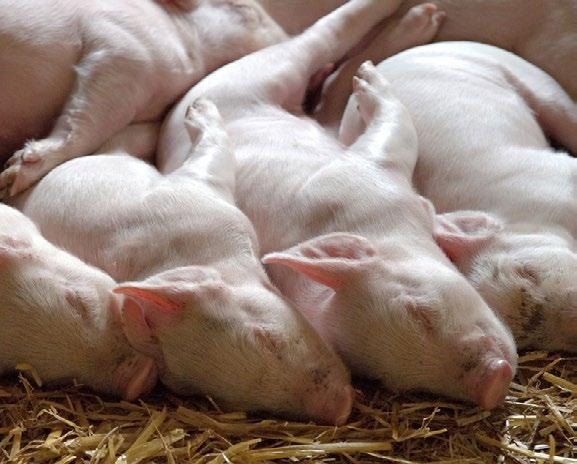
Lactating sows should not lose much weight while the piglets are still sucking. A healthy, well fed sow can be in heat as early as a week after weaning the previous litter. If she is in a bad condition, it will take her longer to recover.
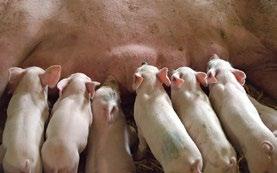
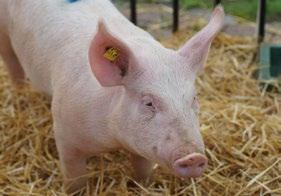
From the age of ten weeks, piglets can receive a feed mixture that will result in better meat production and less fat production. This will produce a better quality pork and will increase the profitability of the piggery.
Boars
Boars need to be kept in good condition for breeding purposes. They need to be fed a mixture that is high in fibre and protein, usually containing bran rather than grain.
Pregnant sows
These sows can be fed with the same feed as the boars seeing that their dietary requirements are similar. Sows need to maintain a good condition for the health or their piglets, and also to keep a healthy reproductive cycle.
Sows with piglets
The mixture is usually referred to as a lactating sow mixture. A good quality feed will prevent her from losing too much weight while feeding her piglets. A healthy sow can be in heat as soon as a week after the previous litter had weaned.
Young pigs
Young pigs from the age of three to ten weeks also need their own mixture. The final mixture can be fed to growing pigs up to the point that they weigh between 60 and 90 kg. These pigs are then ready for slaughter. This is also known as the grower mixture that will ensure fast growing pigs with more meat and less fat. The difference between the mixtures is the content of digestible energy, proteins, minerals, and vitamins. These feed mixtures can be bought as readymade mixtures, or they can be mixed
by the farmers themselves. Mixing your own feed can be cheaper, but there is a higher risk involved. If the pigs do not receive the correct quantity of nutrients in the various growth stages, it may hamper production rates. A farmer should therefore consult with feeding experts before mixing his own pig feed.
Pig feed can be mixed by using the following products: • Grains such as maize, sorghum, wheat, barley, or oats • Grain by-products such as wheat bran, hominy chop or maize bran • Plant proteins like soya oilcake or sunflower oilcake • Animal proteins like fishmeal or bloodmeal
Other elements that should be added to pig feed include feed grade lime, salt, calcium phosphate and a mineral and vitamin feed additive. The most important factor to consider is that the feed must meet the demands of the pigs in the various production stages, specifically the protein and digestible energy requirements. Pig farming can be a very lucrative business, but feed can make the difference between a successful piggery and a pig sty.
In the next issue we shall discuss piggery management principles in order to give your farm the advantage.
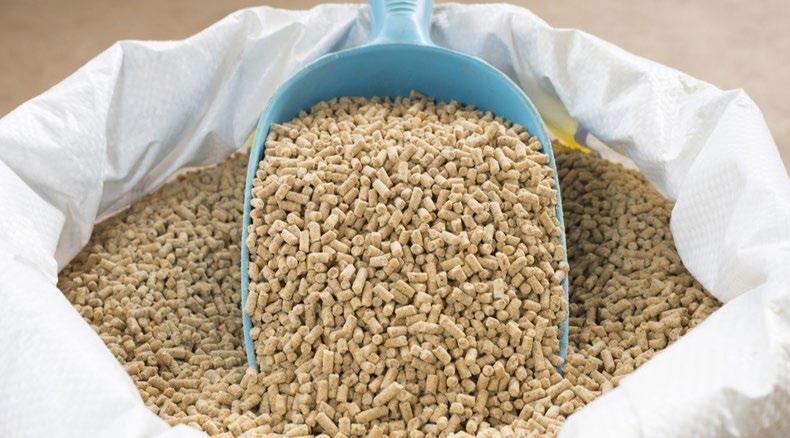

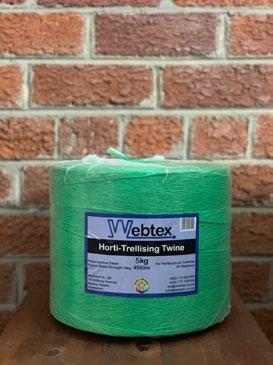
SADC certified
Manufacturers & Suppliers of Quality Agri Inputs

Tobacco Twine Baling Twine Trellising Twine Trellis Netting Potato Pockets Industrial Sewing Thread And more.....
23 Anthony Avenue, Msasa, Harare, Zimbabwe +263777119632 / +263779530563 julie@webtex.co.zw / ian@webtex.co.zw www.webtex.co.zw / Instagram: Webtex_zw
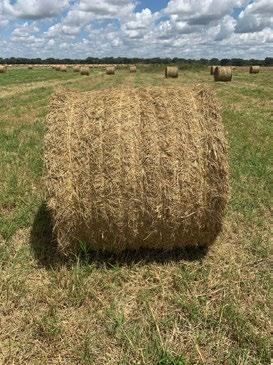
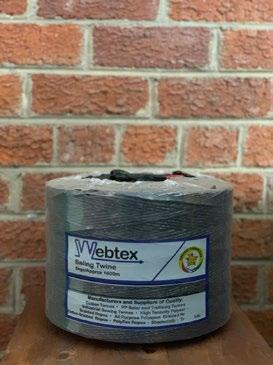
COMESA certified COMESA certified

Remember to:
• Wash their hands frequently. • Disinfect surfaces frequently. • Stay home if sick and to be fever-free for 24 hours before returning to work.
STOP THE SPREAD OF
COVID19
we feed livestock & poultry
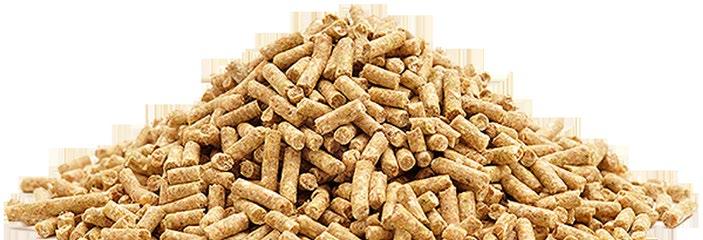
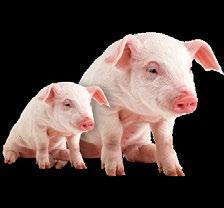
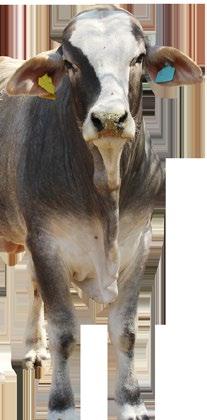

Proud supplier of Opti Feeds
Livestock supplements and feed
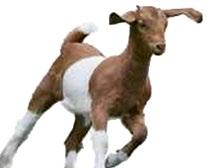

OPTI Ruminant Maintenance Feed OPTI Boerbok Ram Lamb & Ewe OPTI Boerbok Complete Finisher Molassesavailable in 50kg OPTI Broilers Feed - Pellets/Mash Starter: available in 10-50kg Grower: available in 10-50kg Finisher: available in 10-50kg Layers Mash - available in 50kg
Indigenous Feed THE AGRI SHOP
Gaborone: +267 3186115 | 75032186 We Are Countrywide

OPTI Winter Lick - available in 50kg OPTI Pig feed - available in 50kg OPTI Sheep feed - available in 50kg OPTI Dairy feed - available in 50kg Kimtrafos - 6,12,18 Grande
quote@montgroup.co.bw vlado@montgroup.co.bw
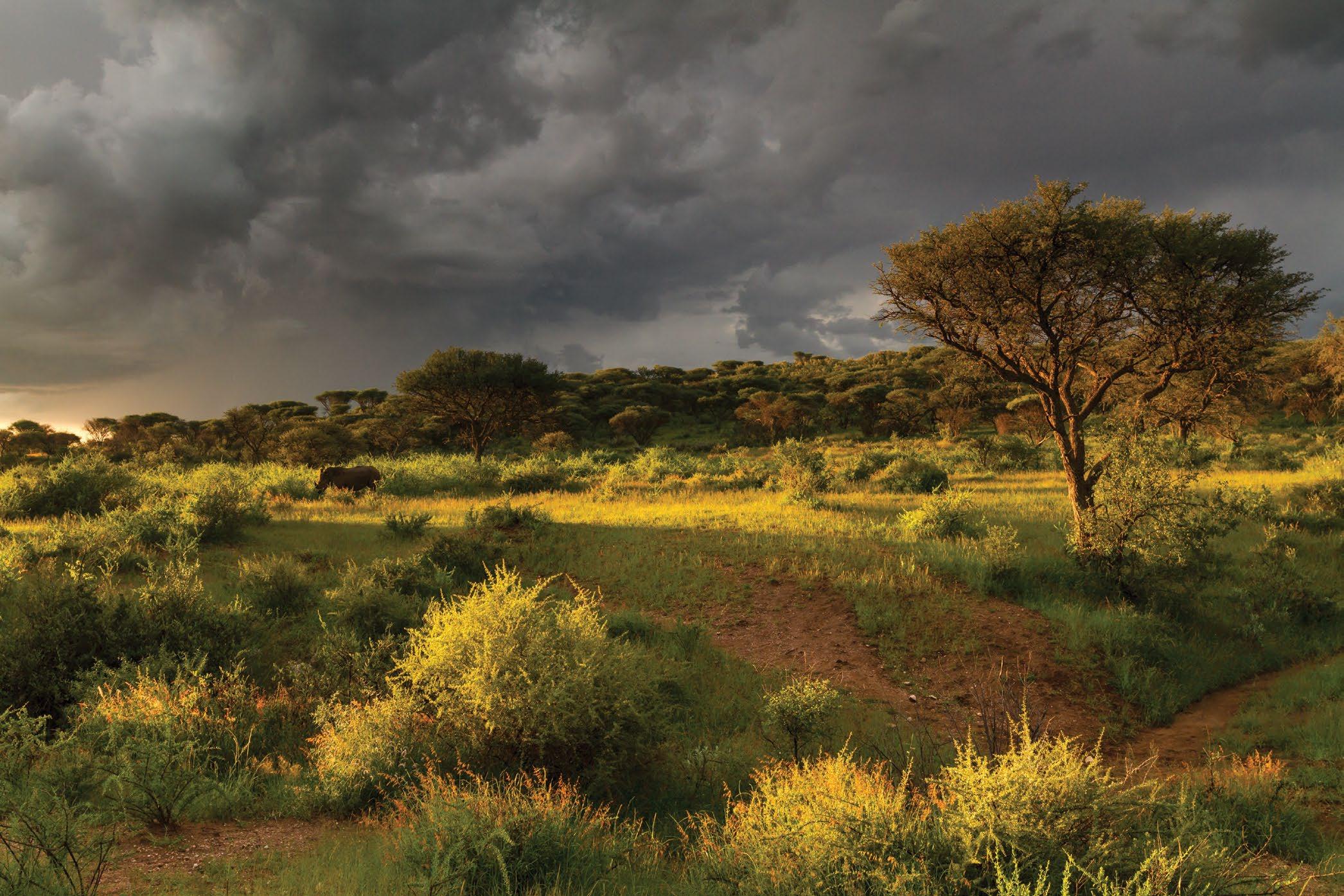

Windhoek Ondangwa Grootfontein Otjiwarongo Omaruru
HEAD OFFICE:
Plot 211 , Lafrenz Ext 1 , c/o Monte Christo Road & Industria Street 061-226 266 061-401 490 065-240 483 067-248 500 067-300 300 064-571 418 Gobabis 062-565 335 Rehoboth 062-521 550 Mariental 063-241 309 Hardap 063-240 897 Stampriet 063-260 046 Gochas 063-250 135
Aranos Keetmanshoop Kalahari Padstal Depot (Omitara)











